Alicia Keys, Ricky Martin, Queen among additions to National Recording Registry
- Oops!Something went wrong.Please try again later.
- Oops!Something went wrong.Please try again later.
- Oops!Something went wrong.Please try again later.
- Oops!Something went wrong.Please try again later.
- Oops!Something went wrong.Please try again later.
- Oops!Something went wrong.Please try again later.
- Oops!Something went wrong.Please try again later.
Alicia Keys' soulful 2001 debut album, "Songs in A Minor," Ricky Martin's boisterous "Livin' La Vida Loca," and Queen's epic "Bohemian Rhapsody" are just a few of the latest recordings being added to the Library of Congress' National Recording Registry, to be preserved for future generations.
On Wednesday the Library announced 25 audio recordings spanning nearly a century are being inducted to the Registry, a compendium of sound recordings deemed representative of America's artistic, cultural and historic treasures.
Also selected this year: Linda Ronstadt's 1987 collection of mariachi songs, "Canciones de Mi Padre"; Bonnie Raitt's gritty country album, "Nick of Time"; the indominable "Don't Stop Believin'" by Journey; Max Roach's avant-garde jazz suite, "We Insist!"; and Wu-Tang Clan's first album, "Enter the Wu-Tang (36 Chambers)."
Also: "Ellington at Newport," preserving Duke Ellington's concert at the 1956 Newport Jazz Festival; speeches by President Franklin D. Roosevelt; New York radio station WNYC's September 11, 2001 broadcast about the attack on the World Trade Center, just blocks from their studio; and a 2010 Marc Maron podcast featuring guest Robin Williams discussing comedy, insecurity and suicide.
The recordings in the Registry, which encompass all genres — including rock, pop, jazz, classical, country, folk, gospel, Broadway and spoken word, as well as radio broadcasts and now podcasts — have been recognized as vital to our nation's audio legacy.
"The National Recording Registry reflects the diverse music and voices that have shaped our nation's history and culture through recorded sound," said Librarian of Congress Carla Hayden. "The national library is proud to help preserve these recordings, and we welcome the public's input. We received about 1,000 public nominations this year for recordings to add to the Registry."
Listen to audio samples and read about this year's 25 additions to the Library of Congress' National Recording Registry (below, in alphabetical order), and then find out how you can nominate titles to be added.
"Bohemian Rhapsody" by Queen (1975)
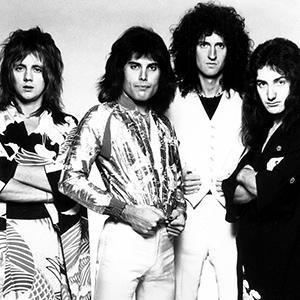
Mama, Just killed a man, Put a gun against his head, pulled my trigger, now he's dead Mama, life had just begun, But now I've gone and thrown it all away
The nearly six-minute "Bohemian Rhapsody" was a gargantuan production, recorded over three weeks, with Queen's bandmembers singing 10 to 12 hours a day, creating a sound mix with 180 overdubs — all for a song that had no easily defined structure, chorus, or consistent musical style. What it was, was an intriguing performance piece for lead singer-songwriter Freddie Mercury, part of Queen's album "A Night at the Opera," that jolted from rock to ballad to classical in tone, like an operetta on medication withdrawal.
The group resisted efforts to edit the song down to a length that could assure airplay. Yet their visually haunting music video — created six years before the launch of MTV — was a sensation when it aired on the British music series "Top of the Pops."
The song became Queen's first U.S. Top 10 hit. And the enthusiasm with which this oddball song was embraced is no more telling than in its cameo appearance in the 1992 comedy "Wayne's World," where the cast engages in an ebullient headbanging sing-along while riding in Garth's AMC Pacer. Galileo! Galileo!
PLAY AN EXCERPT: "Bohemian Rhapsody"
"Buena Vista Social Club" (album) (1997)

This bestselling album, produced by Nick Gold and guitarist Ry Cooder and recorded in Havana, features an all-star ensemble of 20 Cuban musicians, including bassist Orlando "Cachaito" López, guitarist Eliades Ochoa, pianist Rubén González, and singers Manuel "Puntillita" Licea and Compay Segundo.
Their sparkling recordings of traditional Cuban trova, danzón, filin and bolero inspired a resurgence of Cuban and Latin music, and won the Grammy for best traditional tropical Latin album.
The group's subsequent tour in Europe and New York was the focus of Wim Wenders' 1999 documentary, "Buena Vista Social Club," which was previously added to the Library's National Film Registry, their compendium of motion pictures to be preserved for future generations.
PLAY AN EXCERPT: "Buena Vista Social Club"
"Canciones de Mi Padre" by Linda Ronstadt (1987)

Linda Ronstadt has sold 100 million records and won 11 Grammys, for songs in wildly different musical styles, from rock and pop to country and jazz standards. But it was her 1987 collection of mariachi songs that may have been the most personal to her, harking back to her childhood in Arizona and her love of Chicano music.
The record sold two million copies (it is the best-selling non-English recording in American recording history), and won the Grammy for best Mexican/Mexican-American album. Last year "Canciones de Mi Padre" was inducted into the Grammy Hall of Fame.
PLAY AN EXCERPT: "Canciones de Mi Padre"
"The Christmas Song" by Nat King Cole (1961)
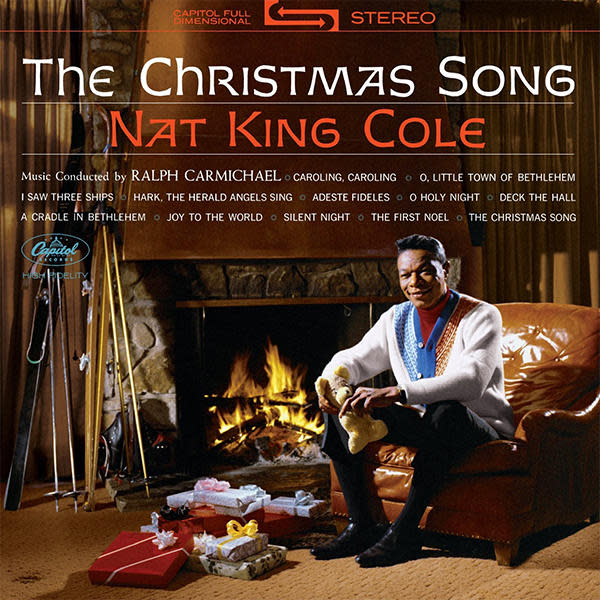
The phrase "Chestnuts roasting on an open fire" immediately conjures a Yuletide spirit, even for those who'd never smelled a roasting chestnut. But it was exactly the kind of evocative lyrics that singer Mel Tormé and his collaborator Robert Wells used to craft what would become a holiday standard (written, it should be noted, during the heat of July in 1945).
They pitched the song to Nat King Cole, who'd already had a Top 10 hit with "Straighten Up and Fly Right," and Cole recorded it, first with his jazz trio in 1946, and then three more times — with added strings and, finally, in 1961 with a full orchestra, in stereo.
Though covered by many artists, this version of Cole's, conducted by Ralph Carmichael, is the one that has endured as perhaps the favorite secular song of the holidays.
PLAY AN EXCERPT: "The Christmas Song"
"Don't Stop Believin'" by Journey (1981)
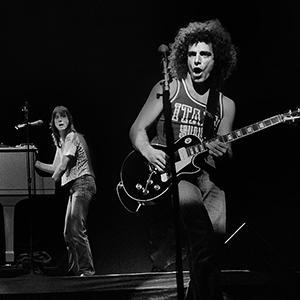
It's been dubbed "the perfect rock song," and its legacy includes performances during countless sports events, the rousing conclusion of the Broadway musical "Rock of Ages," and the blackout finale of "The Sopranos."
Written by Journey lead singer Steve Perry, Neal Schon and Jonathan Cain, "Don't Stop Believin'" (featured on their album "Escape") has endured as the band's pinnacle.
PLAY AN EXCERPT: "Don't Stop Believin'"
"Ellington at Newport" by Duke Ellington (1956)
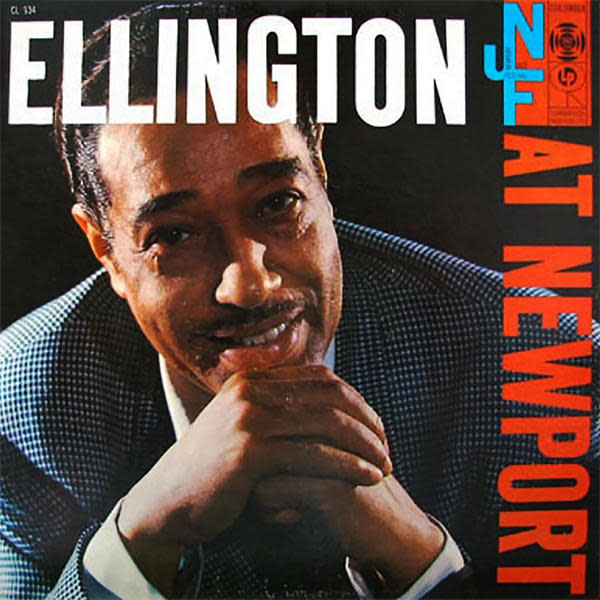
At the 1956 Newport Jazz Festival, Duke Ellington and his orchestra performed a historic set, including Ellington's 1930s composition "Diminuendo and Crescendo in Blue," complete with 27 choruses egged on by the audience.
Ellington's reputation took a giant upswing, landing on the cover of Time, while the 1956 Columbia LP of his orchestra's performance became one of the most famous jazz albums in history.
The album, however, was incomplete, as tenor saxophonist Paul Gonsalves wasn't fully miked, and it was bolstered by in-studio recordings. In 1996, a complete recording of the Newport set, made for an overseas Voice of America broadcast, was uncovered and restored, as part of a 1999 remastered CD release.
PLAY AN EXCERPT: "Ellington at Newport"
"Enter the Wu-Tang (36 Chambers)" by Wu-Tang Clan (1993)
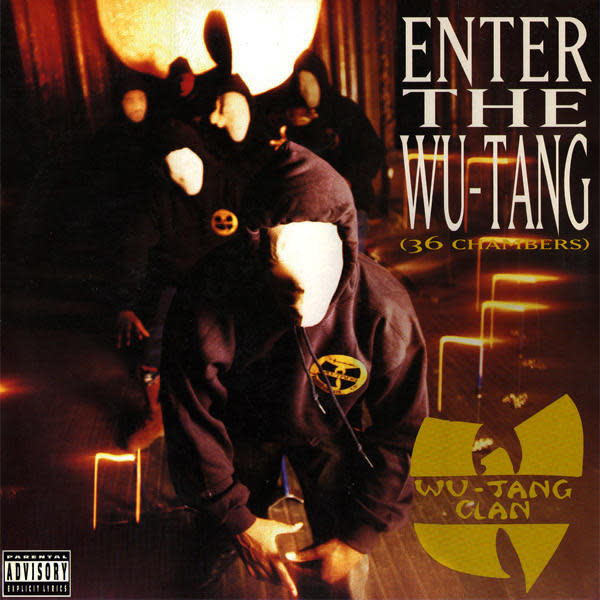
The Staten Island hip hop group Wu-Tang Clan released seven studio albums over 22 years, proving extraordinarily influential in shaping hardcore rap with a lo-fi sound and intense, paranoid energy.
Their debut album, "Enter the Wu-Tang (36 Chambers)," produced by RZA and inspired by martial arts films and comic books, used free associative lyrics and humor to tells stories of urban life and violence, with multiple rappers contributing to virtually each track — a battle royale.
PLAY AN EXCERPT: "Enter the Wu-Tang (36 Chambers)"
Franklin D. Roosevelt: Complete Presidential Speeches (1933-1945)
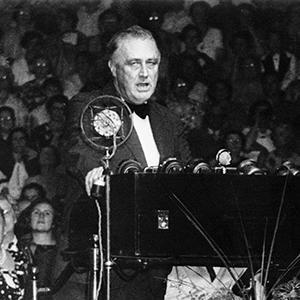
No address of President Franklin D. Roosevelt is more famous than his "day of infamy" call for war following Japan's attack on Pearl Harbor. But FDR — a master communicator who wielded the medium of radio like no president before — used his bully pulpit to touch on the critical historic issues of the day, for a nation reeling from the Depression and watching as clouds of fascism grew over Europe.
Roosevelt, who'd served as assistant secretary of the Navy during World War I, delivered a stirring anti-war speech in Chautauqua, N.Y., on August 14, 1936:
"I have seen war. I have seen war on land and sea. I have seen blood running from the wounded. I have seen men coughing out their gassed lungs. I have seen the dead in the mud. I have seen cities destroyed. I have seen 200 limping, exhausted men come out of line — the survivors of a regiment of 1,000 that went forward 48 hours before. I have seen children starving. I have seen the agony of mothers and wives. I hate war."
PLAY AN EXCERPT: "I Have Seen War"
Hank Aaron's 715th Career Home Run (April 8, 1974 radio broadcast)
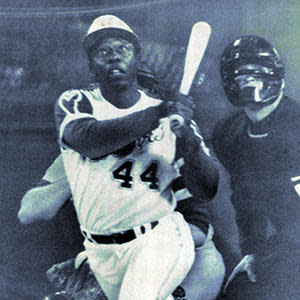
Sports announcer Milo Hamilton, broadcasting for Atlanta station WSB, captured the excitement as the Atlanta Braves' Hank Aaron strode to the plate during the fourth inning on April 8, 1974, just one shy of breaking one of the most unreachable of all sports records: Babe Ruth's 714 home runs.
When Los Angeles Dodgers pitcher Al Downing threw his fastball, the racist taunts and death threats that Aaron, who was African American, had received for daring to threaten Ruth's record were left in the dust, by a ball sailing over the left-center field fence into the bullpen.
And by the way, the Braves won, 7-4.
PLAY AN EXCERPT: Hank Aaron 715th home run broadcast
"Harlem Strut" by James P. Johnson (1921)
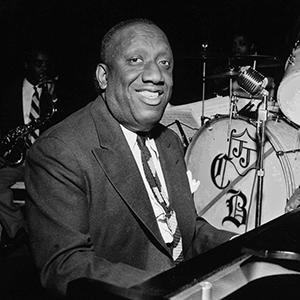
The piano style known as "Harlem Stride," which fused elements of ragtime and jazz, was popularized by James P. Johnson, the composer of "The Charleston" and a teacher of Thomas "Fats" Waller.
Although he had produced piano rolls, Johnson made a 1921 recording for Black Swan Records of "Harlem Strut," which (along with Eubie Blake's "Sounds of Africa") professes to be the first example of recorded Harlem Stride piano.
PLAY AN EXCERPT: "Harlem Strut"
"In C" by Terry Riley (1968)
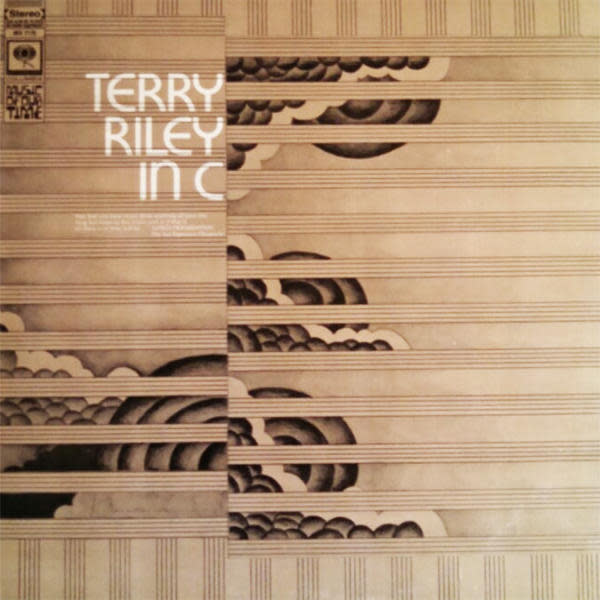
First performed in 1964 at San Francisco's Tape Music Center, the minimalist composer Terry Riley's "In C" forgoes a traditional written score, instead consisting of 53 melodic phrases that are improvised and repeated on undefined instruments. (Among the musicians at the Tape Music Center were Steve Reich, Morton Subotnik and Pauline Oliveros.)
The composition, which has no set duration, was recorded in 1968 for Columbia Records' "Music of Our Time" series of experimental contemporary works, with a group of 10 musicians (led by Riley, on saxophone).
PLAY AN EXCERPT: "In C"
"It's a Small World" performed by the Disneyland Boys Choir (1964)
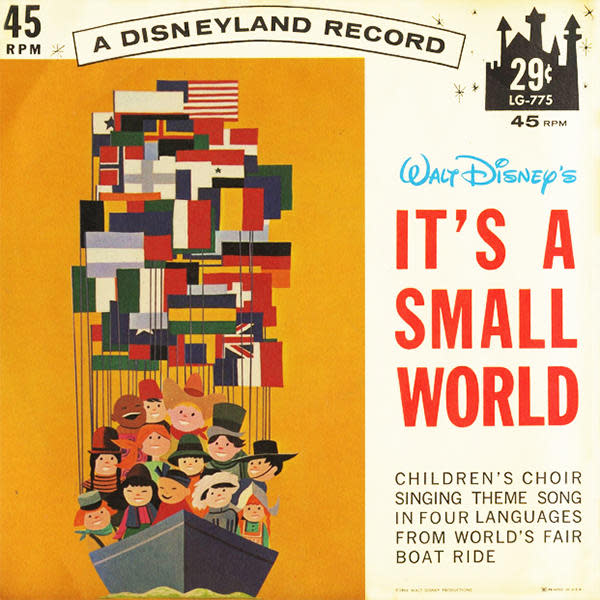
During the 1964 World's Fair in New York City, a Disney ride took visitors through a hall featuring puppets representing children from around the world, singing a tune by Richard B. and Robert M. Sherman, the songwriters behind "Mary Poppins" and other Disney films.
The ride was later moved to Disneyland, where "It's a Small World" continued to be heard for generations. Originally released as a promotional disc at the Fair, the song was reissued and became an inseparable part of the Disney brand.
PLAY AN EXCERPT: "It's a Small World"
"Jesus Gave Me Water" by The Soul Stirrers (1950)
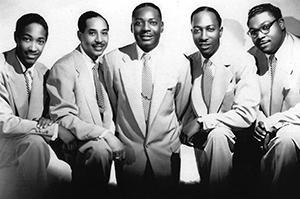
Years before Sam Cook added an "e" to his name and became a renowned R&B singer, he was a member of the gospel group The Soul Stirrers, replacing their lead leader, R.H. Harris, whose falsetto performances had marked the style of the ensemble.
As a 19-year-old, Cook's first studio session with the Soul Stirrers produced their hit, "Jesus Gave Me Water."
PLAY AN EXCERPT: "Jesus Gave Me Water"
"Livin' La Vida Loca" by Ricky Martin (1999)
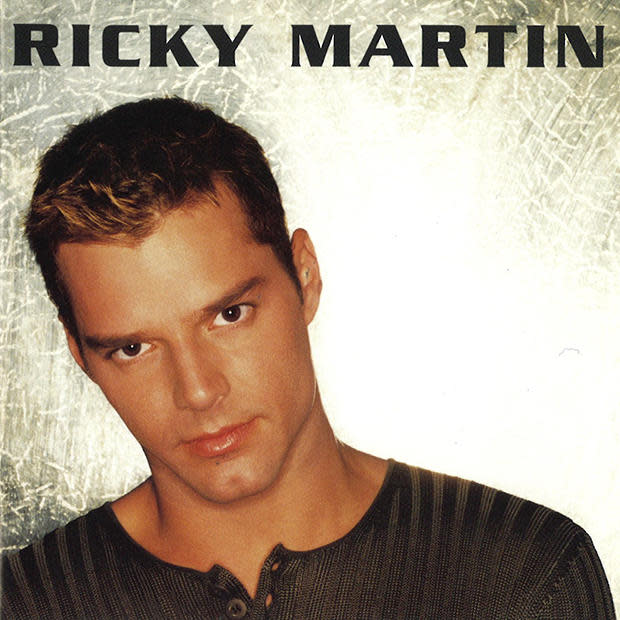
Born in San Juan, Puerto Rico, Ricky Martin has spent most of his life on stage, appearing in TV commercials at age 7, and at age 12 joining the Latin boy band Menudo. He then set out on a solo career, releasing four Spanish-language albums beginning in 1991, before making his English-language debut with his fifth, eponymous album.
The lead single, "Livin' La Vida Loca," was far more than just a crossover hit; it was #1 on the Billboard Hot 100 (and topped the charts in 19 other countries), won four Grammys, and was named ASCAP Song of the Year.
PLAY AN EXCERPT: "Livin' La Vida Loca"
"The Low End Theory" by A Tribe Called Quest (1991)
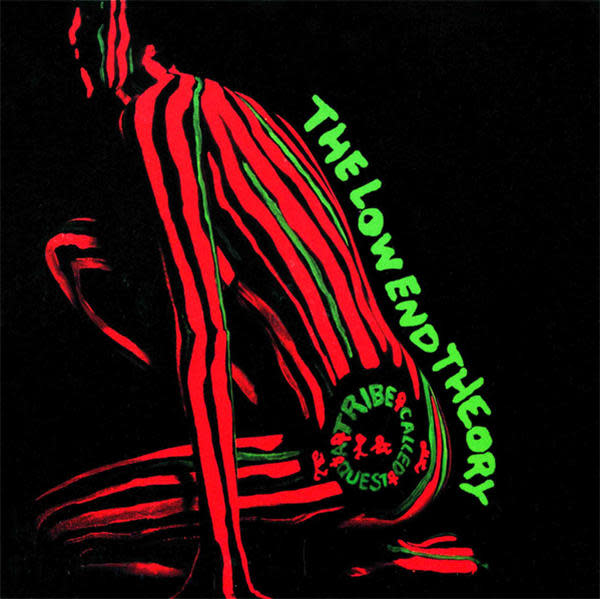
A Tribe Called Quest's second studio release, "The Low End Theory," is frequently acknowledged as the definitive fusion of jazz and rap, and as a counterpoint to "gangsta rap" that was often vilified for glorifying violence.
Produced by Ali Shaheed Muhammad, it features Phife Dawg, Q-Tip, and a guest spot from Busta Rhymes. The album spawned three hit singles: "Check the Rhime," "Jazz (We've Got)" and "Scenario."
PLAY AN EXCERPT: "The Low End Theory"
"Moon River" by Andy Williams (1962)
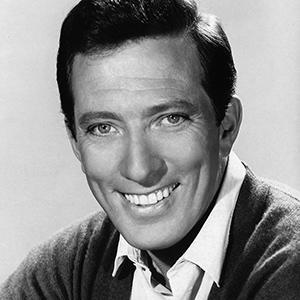
Moon river, wider than a mile I'm crossing you in style some day Oh, dream maker, you heart breaker Wherever you're goin', I'm goin' your way
In the 1961 film "Breakfast at Tiffany's," Audrey Hepburn sang Henry Mancini and Johnny Mercer's "Moon River," a song that spoke to the heart of Holly Golightly, and to the millions of Hepburn's fans who watched her heroine struggle with romance.
The tune would be covered by numerous artists, from Jerry Butler, Frank Sinatra, Judy Garland and Steve Lawrence to Louis Armstrong. For Andy Williams, who featured it in his gold-selling "Moon River and Other Great Movie Themes," it would become his signature song.
PLAY AN EXCERPT: "Moon River"
"Nick of Time" by Bonnie Raitt (1989)

Bonnie Raitt grew up in the music business — her father, John Raitt, was a star of musical theater, and her mother played piano. But while she performed from a young age, and lived the rock 'n' roll life on the road for close to 20 years, it wasn't until her 10th studio album, 1989's "Nick of Time," that she had a commercial breakthrough.
With producer Don Was, Raitt crafted a gritty and emotionally-charged album (which she described as "a return to my roots") that included the songs "Thing Called Love," "Have a Heart," "Love Letter," and the title track.
After hitting #1 on the Billboard 200, "Nick of Time" won three Grammy Awards, including album of the year.
PLAY AN EXCERPT: "Nick of Time"
"On a Note of Triumph" (May 8, 1945 radio broadcast)
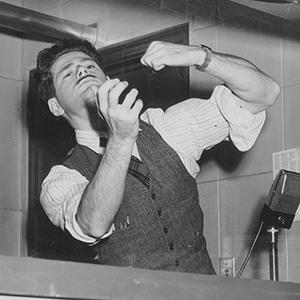
"Peace is never granted outright. It is lent, and leased. You can win a war today and lose a peace tomorrow. Win in the field, and lose in the forum."
Following the attack on Pearl Harbor, as the U.S. lurched into war, writer and producer Norman Corwin created a radio tribute to the Bill of Rights, "We Hold These Truths," which received the largest radio audience to date. On May 8, 1945, V-E Day, 60 million Americans tuned in to Corwin's CBS broadcast, "On a Note of Triumph," a salute to the Allied victory in Europe.
The hour-long broadcast, anchored by narrator Martin Gabel with music by Bernard Herrmann, was a drama that encapsulated years of a costly war against an existential threat to freedom, and sought to address a no-doubt nervous nation that wondered, "What do we do now?"
PLAY AN EXCERPT: "On a Note of Triumph"
"Reach Out, I'll Be There" by The Four Tops (1966)
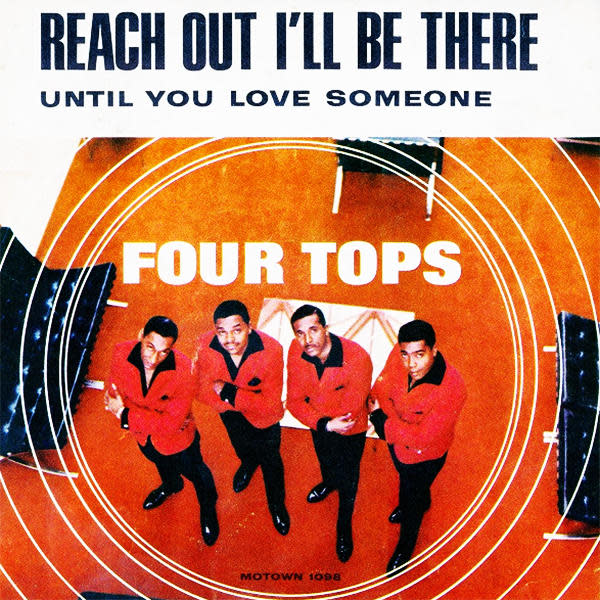
I'll be there, with a love that will shelter you I'll be there, with a love that will see you through
The Four Tops' biggest hit, "Reach Out, I'll Be There," was recorded at Hitsville USA, Motown's landmark studio.
It was a marriage of major/minor key changes, improvisation, a testing of vocal ranges (Levi Stubbs' straining voice added to his impassioned performance), and inspired trials (such as hitting the plastic head of a tambourine with no jingles).
PLAY AN EXCERPT: "Reach Out, I'll Be There"
"Songs in A Minor" by Alicia Keys (2001)
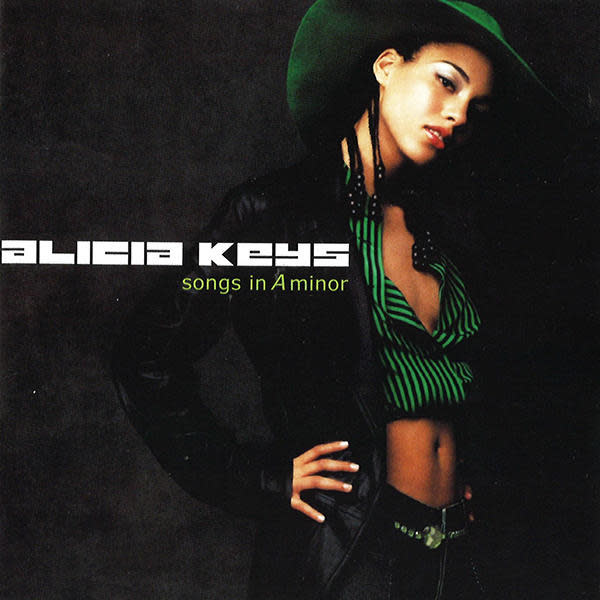
I keep on fallin' In and out of love With you Sometimes I love ya Sometimes you make me blue Sometimes I feel good At times I feel used Lovin' you darlin' Makes me so confused
Raised by a single mom in a tough New York neighborhood, Alicia Keys' gifts as a classically-trained pianist, singer, songwriter, and student of R&B, jazz and hip hop were evident at an extraordinarily young age. A high school valedictorian at 16, she received a scholarship to Columbia University and a contract with Columbia Records. But dissatisfaction with the label led to her signing with Clive Davis' J Records, which released her debut album, "Songs in A Minor," when she was 20 years old.
Keys was afforded great independence in shaping the final product, creating a fusion of musical styles. Songs included "Fallin'," "A Woman's Worth," "How Come You Don't Call Me," and "Girlfriend." The album went multi-platinum, and nabbed Keys five Grammy Awards, including song of the year and best female R&B vocal performance (for "Fallin'"), and best new artist.
PLAY AN EXCERPT: "Fallin'," from "Songs in A Minor"
"Tonight's the Night" by The Shirelles (1961)

In this, The Shirelles' debut album, Shirley Owens, Beverly Lee, Doris Coley and Addie "Micki" Harris — former classmates from Passaic, N.J., then in their early 20s — expressed passions and longings with a style that predated Motown girl groups.
The track list included "Tonight's the Night," "Dedicated to the One I Love," "Boys," and the #1 single, "Will You Love Me Tomorrow."
PLAY AN EXCERPT: "Will You Still Love Me Tomorrow," from "Tonight's the Night"
"Walking the Floor Over You" by Ernest Tubb (1941)

"Texas Troubadour" Ernest Tubb recorded "Walking the Floor Over You" several times during his career, though this initial release — an early honky tonk hit — would sell more than a million records.
Tubb later joined the Grand Old Opry; formed a band, The Texas Troubadours; and hosted a radio program, "Midnite Jamboree." He would inspire scores of country artists, and appeared as himself in the 1980 Loretta Lynn biopic, "Coal Miner's Daughter."
PLAY AN EXCERPT: "Walking the Floor Over You"
"We Insist! Max Roach's Freedom Now Suite" by Max Roach (1960)

In a work that further expanded the boundaries of jazz, drummer Max Roach, tenor sax players Coleman Hawkins and Walter Benton, trumpeter Booker Little, trombonist Julian Priester, bassist James Schenk, percussionists Babatunde Olatunji, Raymond Mantilla and Thomas Du Vall, and singer Abbey Lincoln brought forth an avant-garde jazz suite that tells dramatic stories of a nation struggling for freedom and justice, through protest, prayer, and a panoply of African rhythms.
The album concludes with "Tears for Johannesburg," a mournful and moving tribute to the victims of the Sharpeville massacre in South Africa.
The album's subject matter was considered controversial by some critics, but Roach protested the importance of performing socially-relevant music. "We Insist!" would stand as one of his most vital works.
PLAY AN EXCERPT: "Tears for Johannesburg," from "We Insist!"
WNYC broadcasts on September 11, 2001

New York City public radio station WNYC, one of the country's first municipally-owned broadcast outlets (debuting in 1924), was based in southern Manhattan when the World Trade Center was attacked on 9/11. Breaking into NPR's programming with eyewitness accounts of the disaster occurring just blocks from its studio, WNYC-FM lost its transmitter when the twin towers fell, and was forced to reroute its signal to the station's AM transmitter in New Jersey, while the station staff was evacuated and moved to facilities in midtown.
Throughout, they remained on the air, continuing to deliver the latest news about what was undoubtedly the most tragic day in the city's history.
PLAY AN EXCERPT: WNYC coverage of 9/11
"WTF with Marc Maron" Podcast Featuring Guest Robin Williams (April 26, 2010)
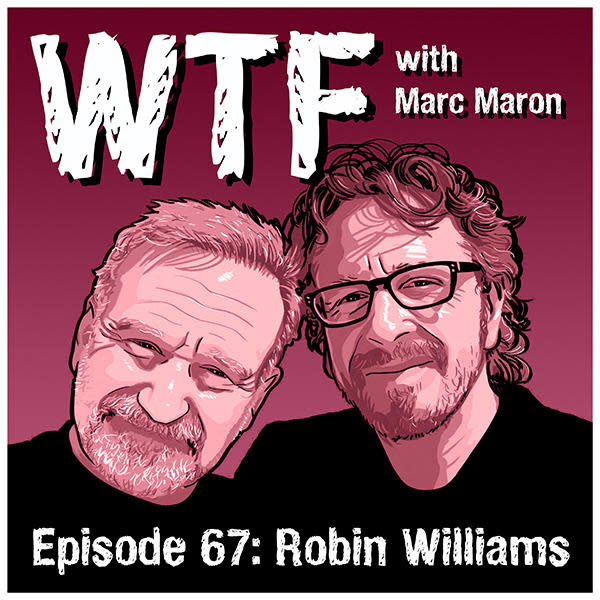
What is likely the first podcast to be inducted into the Registry, is notably one of the first podcasts to gain widespread popularity: "WTF with Marc Maron," in which the comedian and former Air America radio host welcomes luminaries to his garage studio, while also sharing his own life with an eager audience.
Since 2009, Maron has produced more than 1,200 episodes, interviewing such figures as President Barack Obama, Keith Richards, Lorne Michaels, and even "Fresh Air" interviewer Terry Gross. His April 2010 podcast featuring comedian Robin Williams included Williams' discussion about suicide.
PLAY AN EXCERPT: "WTF with Marc Maron featuring guest Robin Williams"
This year's additions bring the number of titles on the National Recording Registry to 600 – just a fraction of the Library of Congress' recorded sound collection of nearly four million items.
For more info:
You can nominate recordings for the National Recording Registry hereView the full list of titles on the National Recording Registry
You can also sample previous years' additions here:
Additions to National Recording Registry (2019)Additions to National Recording Registry (2018)Gallery: Additions to National Recording Registry (2017)Gallery: Additions to National Recording Registry (2016)Gallery: Additions to National Recording Registry (2015)Gallery: Additions to National Recording Registry (2014)Gallery: Additions to National Recording Registry (2013)Gallery: Additions to National Recording Registry (2012)Gallery: Additions to National Recording Registry (2011)Gallery: Additions to National Recording Registry (2009)
Hundreds participate in Granny Basketball League for women over 50
National Recording Registry inducts 25 more recordings, including Ricky Martin and Wu-Tang Clan
"Panda diplomacy" marks 50th anniversary at Smithsonian's National Zoo
